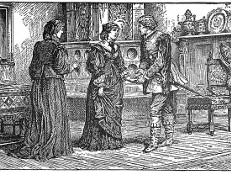The Old Gringo was a book that caught my eye at the beginning of choosing our texts because it was somewhat a romance. I did not expect this book to be all about love, but more themes of war and violence in the story. The Old Gringo was an engaging text about a man known as “Old Gringo” who came to Mexico to die. At the beginning of the novel, there was repetition with the words, the old gringo has come to Mexico to die. I believe that this repetition forces the reader to know what the gringo’s intentions were at the start, to see later that at the end, he has somewhat found a purpose to live. The Old Gringo travels to Mexico, meets Arroyo, and asks him to join his army. After proving himself, Arroyo lets him join, and he meets a lady called Harriet. He quickly falls for her, despite not wanting to but lets himself anyways. Harriet feels like she must protect the old man, so she joins the army to assist onside. The Old Gringo gets into a fight with Arroyo, and Arroyo betrays him by forcing Harriet into a sexual relationship with him, or else he will kill the old man. This tricky love triangle arises in the novel because of conflict. Harriet agrees to this because she wants to protect the old man. Later the old man is found out to be the American author, and Arroyo and him get violent. The Old Gringo dies, and his American support allows a proper burial and charges against Arroyo. This wicked love story filled with violence, repetition, and memories brought me many feelings towards feeling sad for The Old Gringo because he was honouring his morals, and for Harriet because it is unclear whether she genuinely desired Arroyo. I feel hatred towards Arroyo; however, in the end, I feel somewhat bad for him because of the new life he will have to bear, and because he could have killed the old man for his misguided actions before but let him live, however in a painful way. One thing that still remains unclear for me is the repetition of “Now she sits alone and remembers.” I am confused as to who this is referring to. Whether it’s Harriet because the novel is in her point of view, or if it’s an outside character? My question is, what do you guys think the meaning is of the repetition of “Now she sits alone and remembers” is, and who maybe is the one remembering?

